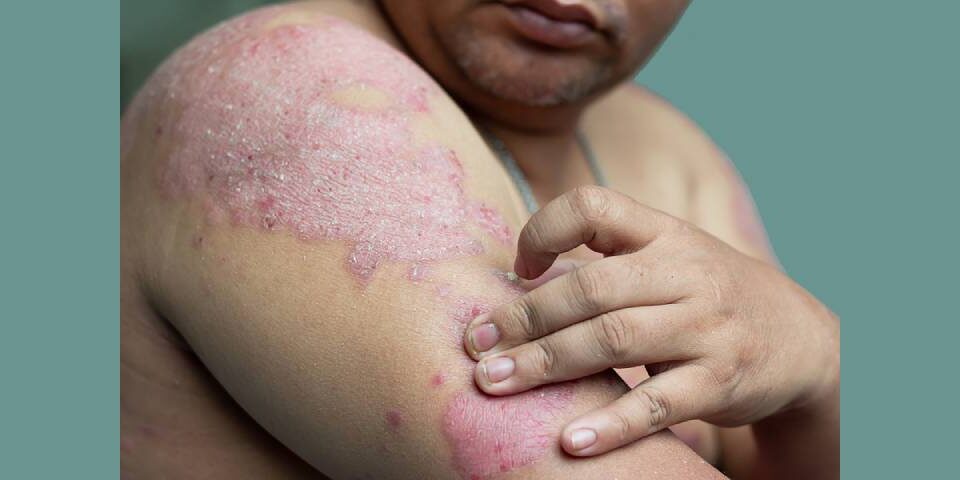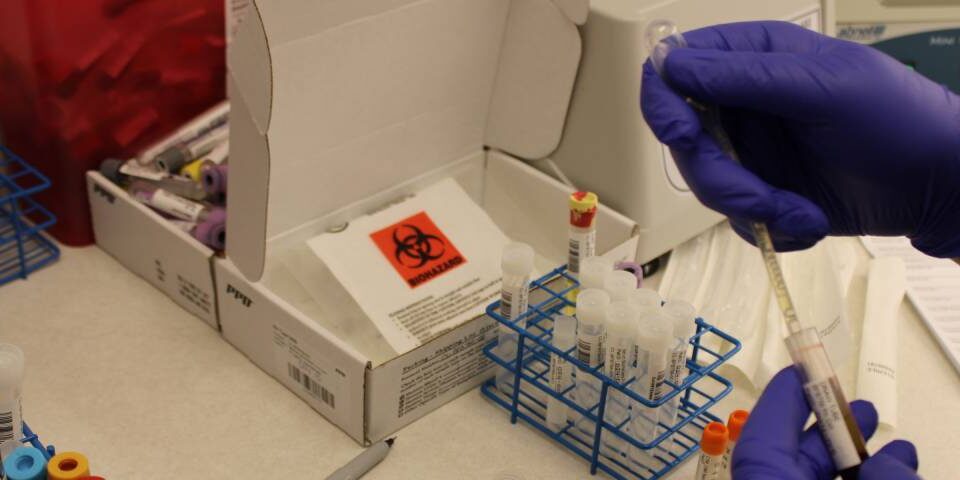
Hot Weather, Hot Flare-Ups: Managing Skin Conditions in the Summer Heat
July 11, 2025
The Future of Palmoplantar Pustulosis Treatment is Being Written in Clinical Trials
September 23, 2025The inevitable slide from the end of summer into autumn is a busy season for many people, and that often means an increase in stress levels, a disruption in routines, and less time for consistent self-care. This “busy season scramble” often causes more flare-ups and worsens skin conditions due to stress and a less predictable skincare routine, not to mention the actual climatic seasonal changes that can also aggravate chronic skin problems.
Today, we’ll explore why “busy season flare-ups” happen, things you can do to mitigate those flare-ups, and how current dermatology clinical trials at Apex Clinical Research Center are striving to discover better, more effective, and easier treatments for skin conditions caused by stress.
How Stress, Perspiration, and Routine Interruptions Affect the Skin
Emerging dermatology research highlights the significant impact of stress on skin health. If you struggle with eczema, for example, you have probably wondered: Can stress cause eczema to flare up? The answer is unequivocally yes. One recent landmark study found that stress was, by far, the biggest eczema flare-up trigger for surveyed patients, with 57% of women and 41% of men listing stress as their biggest trigger. Although stress is not usually the primary cause of conditions like eczema, psoriasis, chronic urticaria, etc., it aggravates underlying mechanisms that cause flare-ups. Five major ways that skin conditions caused by stress are worsened by additional stress include:
1. Stress Increases Inflammation
When stressful situations arise, the body automatically releases hormones like cortisol, which signal the body to respond in ways that help it meet acute threats like illness, injury, infection, or a last-minute science project. When stress reaches chronic levels, it also keeps the inflammation going, which causes problems all over the body, including the skin. Chronic inflammation is a primary trigger for atopic dermatitis (eczema), psoriasis, chronic urticaria, acne, hidradenitis suppurativa (HS), vitiligo, and prurigo nodularis flare-ups.
2. Stress Aggravates the Skin’s Barrier Function
Stress-induced chronic inflammation interferes with the skin’s barrier function by aggravating its balance of inflammatory mediators and immune cells. When this delicate balance is disrupted by stress, a disrupted treatment regimen, or less attention to a therapeutic skincare routine, chronic skin conditions can get worse.
3. Stress adds to Sweat and Friction Irritation
Many people sweat more when they’re under pressure from a hectic schedule or life situation. This is another stress response that can irritate the skin, especially for people with sensitive skin and chronic skin conditions. Excess sweat and friction from stressful activities also break down the skin’s protective barrier. This is especially a problem for people struggling with conditions like HS and prurigo nodularis.
4. Busy Season Stress Leads to Skipped Skincare Routine Steps
Periods of increased stress—such as the start of a school year or the lead-up to the holidays—can disrupt adherence to therapeutic skincare regimens. Patients may unintentionally skip topical medications, reduce hydration, experience poor dietary habits, and get inadequate sleep. These behavioral changes can impair skin barrier recovery, trigger inflammatory pathways, and ultimately worsen chronic skin conditions. Consistent adherence to prescribed treatments and healthy routines is a key factor in managing skin disease severity, yet it is often most difficult to maintain during high-stress periods.
5. Stress Causes More Stress: The Vicious Cycle
A painful, itchy, or visible flare-up can also perpetuate the stress cycle. In addition to the physical discomfort that pushes up the stress response automatically, anxiety and psychological distress about the stigma behind skin conditions can cause people to hide away and worry, and not seek out the support they deserve to get through a flare-up. It’s important to remember that stress is a natural part of life, everybody struggles with it, and skin conditions are not your fault. Genetics, the environment, and multiple external and genetic factors can cause flare-ups and the stress that comes with them.
Skin Conditions Caused by Stress: Smart Strategies for Staying on Track
Proactive self-care during high-stress periods—such as seasonal transitions or demanding personal schedules—can reduce the likelihood and severity of stress-related skin flare-ups. The following strategies can support consistent skin management, even during times of disruption:
1. Create a Routine that Fits Real Life
When routines are disrupted, individuals may unintentionally skip topical medications or essential skin care steps. To improve adherence, consider preparing a travel-size kit with key products (e.g., moisturizer, sunscreen, prescribed topicals) for use during the day. Incorporating digital reminders can also help support medication compliance and routine consistency.
2. Integrate Brief Stress Reduction Techniques
Short, intentional breaks throughout the day can help modulate stress hormone levels, particularly cortisol, which plays a known role in inflammatory skin conditions. Scheduled mindfulness practices such as deep breathing, brief stretching, or outdoor walks have been shown to lower physiological stress markers and improve mental focus.
3. Choose Skin-Friendly Clothing Materials
Friction and excessive perspiration can worsen conditions like hidradenitis suppurativa and eczema. Wearing lightweight, breathable fabrics—such as cotton, linen, bamboo, or moisture-wicking blends—can help reduce irritation and support skin comfort throughout the day.
4. Prioritize Post-Sweat Skin Hygiene
Prompt removal of sweat and irritants after physical activity or high-stress situations can help prevent inflammation and secondary irritation. Individuals with chronic skin conditions may benefit from brief showers or gentle cleansing using non-stripping, moisturizing cleansers as part of their daily skin care protocol.
5. Support Skin Function Through Nutrition and Hydration
Dietary choices play a critical role in inflammatory modulation. Prioritize hydration and nutrient-dense foods (e.g., fruits, vegetables, nuts, herbal teas) that support skin barrier repair and reduce systemic inflammation. Avoiding highly processed snacks, alcohol, and sugary beverages may further reduce the risk of flare-ups during stressful periods.
Dermatology Clinical Trials Aim to Simplify and Improve Care
When managing a chronic skin condition becomes overwhelming, participating in dermatology research can offer both additional support and access to promising investigational treatments. At Apex Clinical Research Center, we are currently enrolling for several dermatology clinical trials focused on therapies designed to be more effective, longer-lasting, and easier to integrate into everyday life. These trials target skin conditions commonly exacerbated by stress, aiming to reduce treatment burden and improve patient outcomes.
We Are Now Enrolling for the Following Dermatology Clinical Trials
- Eczema (Atopic Dermatitis)—New non-steroidal and biologic options for adults and children
- Psoriasis—Research on once-a-day pills and longer-acting biologics
- Hidradenitis Suppurativa (HS)—Oral and injectable treatments for long-term symptom control
- Vitiligo—Targeted topical and systemic therapies
- Prurigo Nodularis—Treatments for chronic itch and inflammation
Visit our Current Studies page to explore these opportunities and learn more about participating in dermatology research at Apex Clinical Research Center.
Conclusion: Your Skin Care Should Work for You—Not Against You
Chronic skin conditions require consistent care, but that care shouldn’t compete with the demands of daily life. With the right support, simplified routines, and access to better treatments through clinical trials, it’s possible to improve your skin health while reducing overall stress. If you're ready for a more sustainable, science-backed solution, consider joining a dermatology clinical trial with us today. Contact us with any questions—we’re here to help you take the next step.





